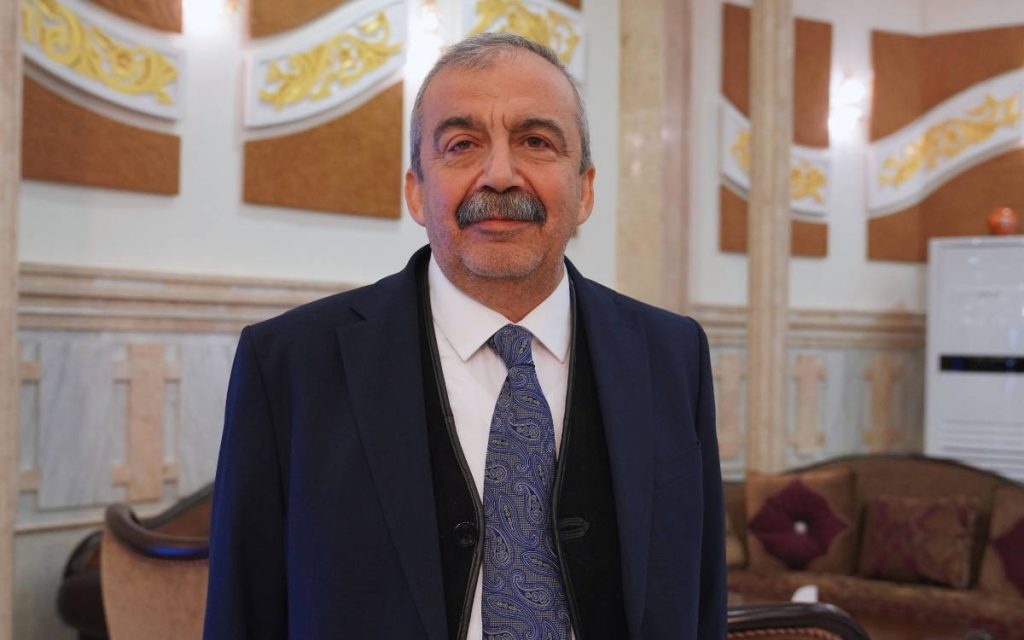Prominent pro-Kurdish politician Sırrı Süreyya Önder tragically passed away on May 3 at the age of 62. However, prior to his death, his party, the Peoples’ Equality and Democracy (DEM) Party, confirmed that there was a suspicious incident involving his car that raised alarms about a potential assassination attempt. This revelation has not only left political circles in turmoil but has also sparked significant concern regarding the safety of political figures involved in sensitive negotiations.
| Article Subheadings |
|---|
| 1) Circumstances Leading to Suspicion |
| 2) Discovering the Device |
| 3) Political Reactions and Responses |
| 4) Önder’s Health and Final Days |
| 5) Broader Implications for Kurdish Politics |
Circumstances Leading to Suspicion
The controversy surrounding the circumstances of Sırrı Süreyya Önder’s death began to unfold on April 2, when a potential plot against him was uncovered. Reports indicate that he was a key figure in discussions aimed at fostering peace within the Kurdish region, which heightened tensions between various political factions. The whispers of conspiracy grew louder as his death followed closely after these developments. This situation not only raises questions about his untimely passing but also casts a pall over the political climate in the region.
Discovering the Device
On April 2, a parking attendant discovered a sharp iron object attached to the rear tire of Önder’s car, indicating a deliberate act aimed at endangering his safety. Authorities were notified, and the vehicle was quickly taken to a service center, where mechanics confirmed the presence of the device, designed to puncture the tire. In their official statement, the DEM Party emphasized the gravity of the situation, asserting that they had informed the authorities and conducted necessary inquiries. However, the incident was kept quiet to not draw public attention, a decision they explained as driven by the ongoing sensitivity of investigations.
Political Reactions and Responses
Following the incident, various political figures expressed their concerns regarding Önder’s safety and the implications of such an assassination attempt. Doğu Perinçek, head of the Patriotic Party, claimed to have presented video evidence of the attempted sabotage to Önder shortly before he was hospitalized. He also quoted Önder as expressing fears of external forces plotting against him, referencing warnings from PKK leader Abdullah Öcalan about potential threats from international powers. Following Önder’s death, the PKK accused both domestic and international elements of trying to undermine ongoing peace negotiations, further escalating fears among political circles.
Önder’s Health and Final Days
Just weeks after the alarming discovery, on April 15, Önder experienced a cardiac arrest attributed to a ruptured aorta. After being hospitalized, he endured 18 days in intensive care before his unfortunate passing. The nature of his health crisis amid the whispers of an assassination has led many to question whether it was merely a tragic medical incident or further evidence of foul play. His condition had been closely monitored, given the preceding incident, and his hospitalization raised eyebrows about the state of his well-being in a context riddled with suspicions of conspiratorial activities.
Broader Implications for Kurdish Politics
Önder’s death and the circumstances surrounding it signal possible shifts in the already volatile landscape of Kurdish politics. In his role in facilitating talks with Öcalan, Önder had remained a crucial player, and his death may disrupt ongoing peace efforts significantly. The Kurdish political scene, already fraught with factional discord, now faces fears of escalated violence and political suppression. Various stakeholders are considering the broader ramifications of his death, both in terms of regional stability and the quest for autonomy among Kurdish communities. The demand for transparent investigations into the events leading up to his demise is echoing louder from local and international observers, who are concerned for the safety of other figures engaged in sensitive negotiations.
| No. | Key Points |
|---|---|
| 1 | Önder was reportedly the target of an assassination plot prior to his death. |
| 2 | A suspicious object was found attached to his car on April 2, raising alarms. |
| 3 | Statements from various political figures suggest possible external influences. |
| 4 | Önder passed away in intensive care after suffering a cardiac arrest. |
| 5 | His death raises concerns about the future of Kurdish peace negotiations. |
Summary
The circumstances surrounding the death of Sırrı Süreyya Önder, especially the reported assassination attempts, highlight the volatile nature of political dynamics in the Kurdish region. As investigations continue, the implications of his passing extend beyond individual concerns, raising serious questions regarding political safety, ongoing peace efforts, and the integrity of political processes in a region long subject to conflict and intrigue.
Frequently Asked Questions
Question: What role did Sırrı Süreyya Önder play in Kurdish politics?
Sırrı Süreyya Önder was a prominent figure in the pro-Kurdish party, known for his efforts in peace negotiations between Kurdish factions and the Turkish state.
Question: What evidence was presented regarding the alleged assassination attempt?
Video evidence of the sabotage attempt on Önder’s car was reportedly shown to him prior to his hospitalization.
Question: What are the potential implications of Önder’s death for future peace efforts?
His passing raises concern about the stability of ongoing peace negotiations and may lead to increased tensions and violence in Kurdish political circles.
